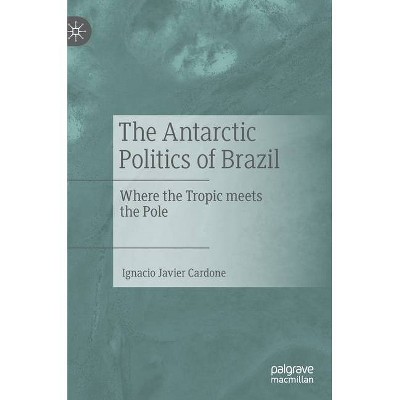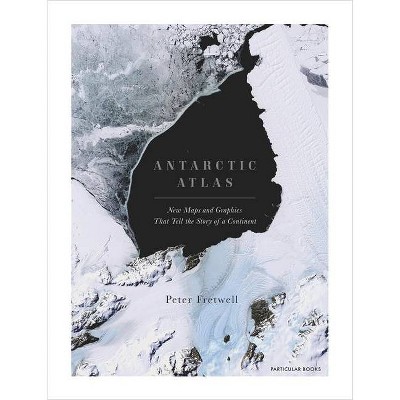The Antarctic Politics of Brazil - by Ignacio Javier Cardone (Hardcover)

Similar Products
Products of same category from the store
AllProduct info
<p/><br></br><p><b> Book Synopsis </b></p></br></br><p>This book focuses on the connection between Brazil and Antarctica, two regions that can be seen as distant and contrasting, but are physically, culturally and politically associated. Relying on archival material and previous literature, the book offers a thorough account of Brazil's involvement with one of the most significant regions in the global environment. The author explores the place of Antarctica in geopolitical works and in the first initiatives involving Brazil and the continent, from the rise of geopolitical thought in Brazil in the 1930s up to the present day. He argues that the connection between Brazil and Antarctica is not without its difficulties, but it has been structured in many enduring ways. The book covers causes for the delay and eventual adoption of a now active foreign policy regarding the region, the policy's early performance in Antarctica, its evolution as a consequence of domestic and international changes, the increasing interest in the environment, and further recent developments.</p><p></p><p/><br></br><p><b> From the Back Cover </b></p></br></br>"Cardone's timely and important book analyzes the history of Brazil's engagement with Antarctica to the present. This is a story that will interest scholars of Antarctic history and politics, but also those interested in Brazil's place within both Latin America and the world."<p><b>-Peder Roberts</b>, Associate Professor of Modern History, KTH Royal Institute of Technology, Sweden</p><p>This book focuses on the connection between Brazil and Antarctica, two regions that can be seen as distant and contrasting, but are physically, culturally and politically associated. Relying on archival material and previous literature, the book offers a thorough account of Brazil's involvement with one of the most significant regions in the global environment. The author explores the place of Antarctica in geopolitical works and in the first initiatives involving Brazil and the continent, from the rise of geopolitical thought in Brazil in the 1930s up to the present day. He argues that the connection between Brazil and Antarctica is not without its difficulties, but it has been structured in many enduring ways. The book covers causes for the delay and eventual adoption of a now active foreign policy regarding the region, the policy's early performance in Antarctica, its evolution as a consequence of domestic and international changes, the increasing interest in the environment, and further recent developments.</p><p><b>Ignacio Javier Cardone</b> is a researcher at the University of São Paulo, Brazil. He has published works on the Antarctic Treaty, the Brazilian Policy for Antarctica, and the Latin American involvement in the region, amongst others.</p> <p/><p/><br></br><p><b> About the Author </b></p></br></br><p><b>Ignacio Javier Cardone</b> is a researcher at the University of São Paulo, Brazil. He has published works on the Antarctic Treaty, the Brazilian Policy for Antarctica, and the Latin American involvement in the region, amongst others.</p><br><p></p>
Price History
Price Archive shows prices from various stores, lets you see history and find the cheapest. There is no actual sale on the website. For all support, inquiry and suggestion messages communication@pricearchive.us




















